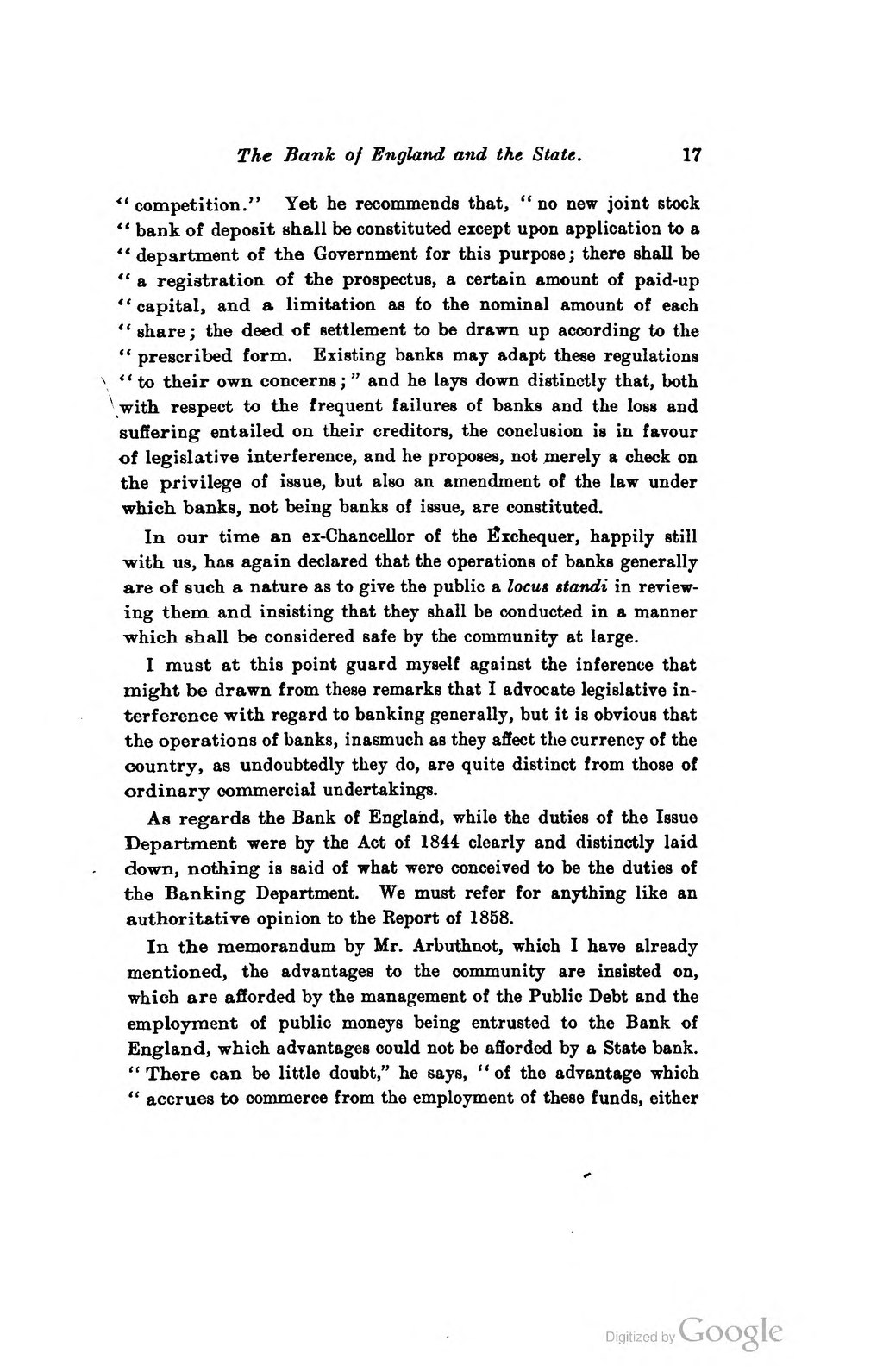competition." Yet he recommends that, "no new joint stock bank of deposit shall be constituted except upon application to a department of the Government for this purpose; there shall be a registration of the prospectus, a certain amount of paid-up capital, and a limitation as to the nominal amount of each share; the deed of settlement to be drawn up according to the prescribed form. Existing banks may adapt these regulations to their own concerns;" and he lays down distinctly that, both with respect to the frequent failures of banks and the loss and suffering entailed on their creditors, the conclusion is in favour of legislative interference, and he proposes, not merely a check on the privilege of issue, but also an amendment of the law under which banks, not being banks of issue, are constituted.
In our time an ex-Chancellor of the Exchequer, happily still with us, has again declared that the operations of banks generally are of such a nature as to give the public a locus standi in reviewing them and insisting that they shall be conducted in a manner which shall be considered safe by the community at large.
I must at this point guard myself against the inference that might be drawn from these remarks that I advocate legislative interference with regard to banking generally, but it is obvious that the operations of banks, inasmuch as they affect the currency of the country, as undoubtedly they do, are quite distinct from those of ordinary commercial undertakings.
As regards the Bank of England, while the duties of the Issue Department were by the Act of 1844 clearly and distinctly laid down, nothing is said of what were conceived to be the duties of the Banking Department. We must refer for anything like an authoritative opinion to the Report of 1858.
In the memorandum by Mr. Arbuthnot, which I have already mentioned, the advantages to the community are insisted on, which are afforded by the management of the Public Debt and the employment of public moneys being entrusted to the Bank of England, which advantages could not be afforded by a State bank. "There can be little doubt," he says, "of the advantage which accrues to commerce from the employment of these funds, either
